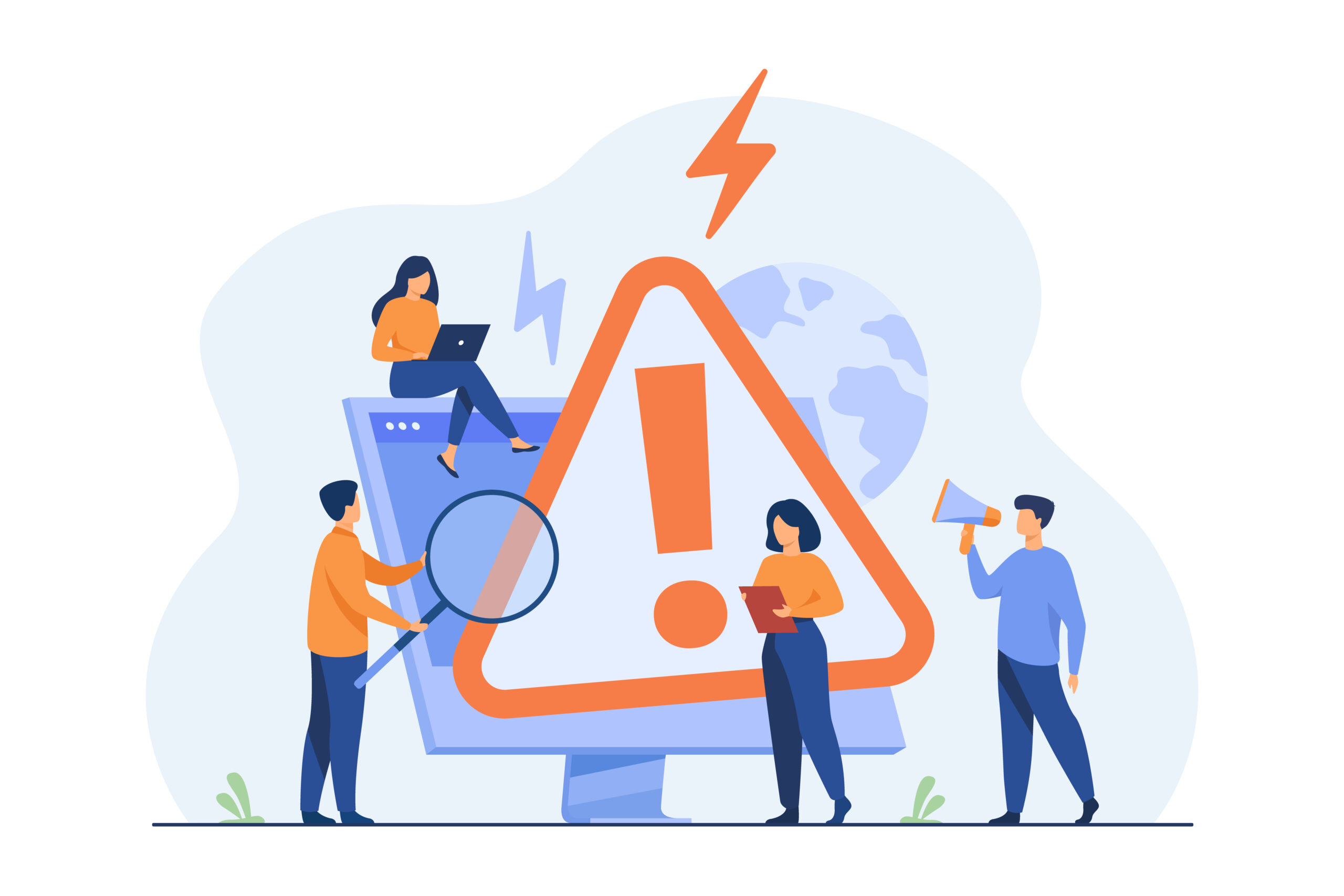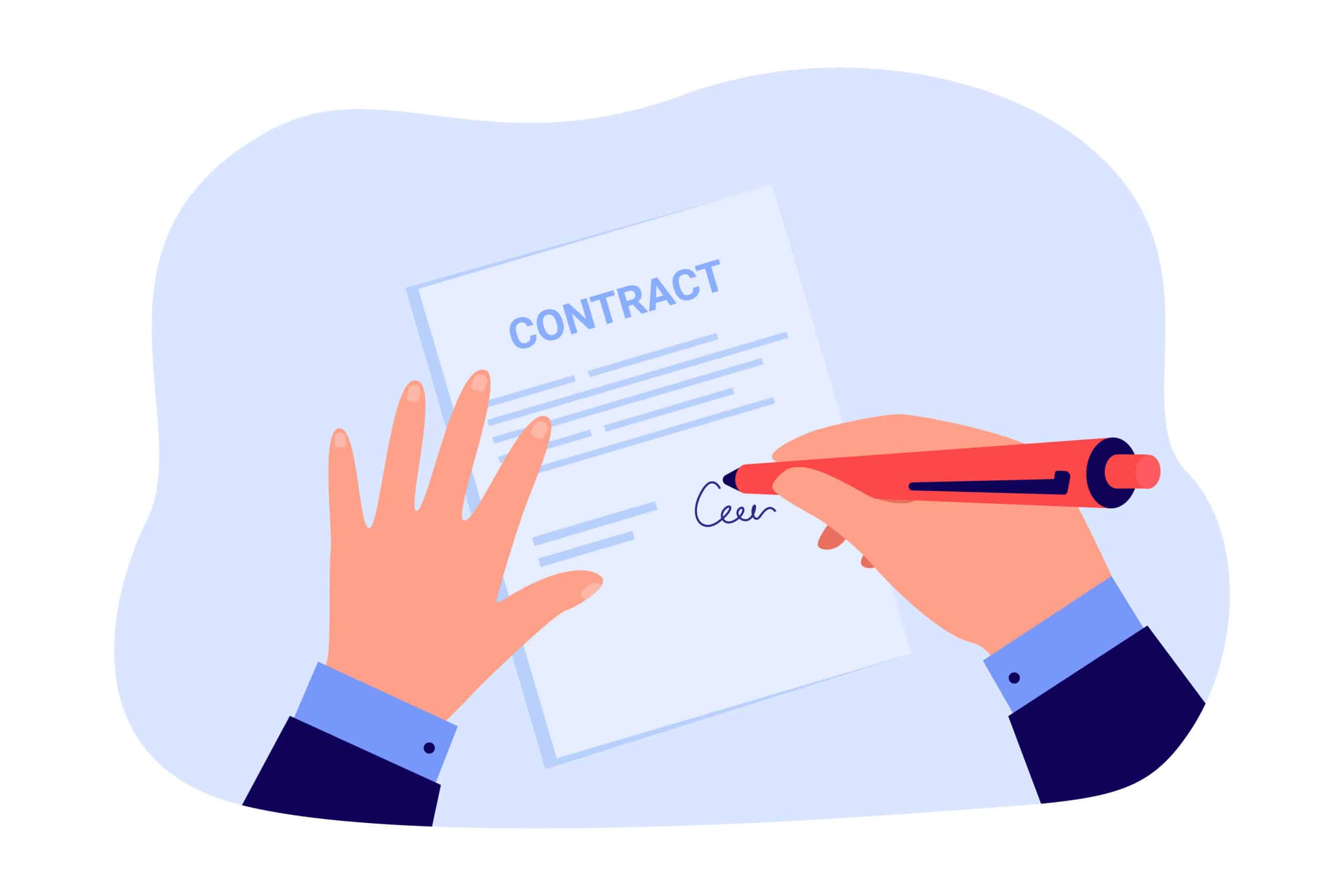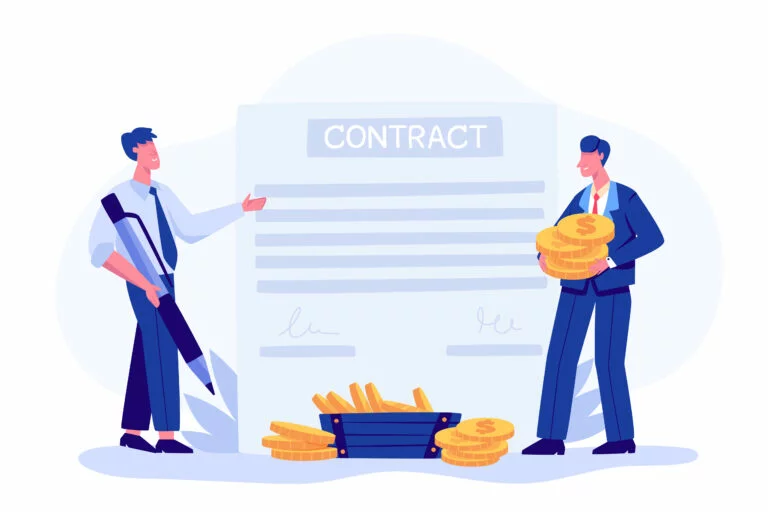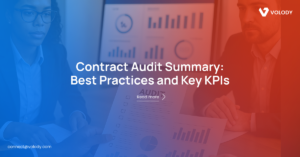Managing contracts is a critical process for any business, but it also comes with inherent risks. Contractual risks can have significant financial and operational consequences, potentially leading to legal disputes, reputational damage, and even business failure. Therefore, understanding and effectively managing contract risk is essential for organizations to protect their interests and ensure successful contract outcomes.
This comprehensive guide will provide you with the knowledge and tools to master contract risk. We’ll talk about different kinds of contract risks, figure out how to spot and understand them, share some top tips for managing these risks, and see how technology can help deal with them. We will also analyze real-world case studies and discuss the future trends in contract risk management.
By the end of this guide, you’ll understand contract risk and how to deal with it in your organization’s contracts. Whether you’re a small business owner, work in procurement, or know a bit about legal stuff, this guide will help you manage contract risks like a pro. Let’s start learning about contract risk management together!
Understanding contract risk means knowing the potential problems or uncertainties that could happen in contracts. It’s like being prepared for anything unexpected that might affect your business deals. This guide will teach you how to spot these risks and what to do about them.
Understanding Contractual Risk

Contract risk refers to potential problems that might happen because of what’s written in a contract. These problems could involve legal issues, money troubles, security concerns, operational glitches, or harm to a company’s reputation. If a company doesn’t handle these risks properly, it could lose a bunch of money, face interruptions in its work, or get into legal battles.
So, it’s super important for businesses to understand the risks in their contracts and have plans to deal with them from start to finish. This means finding out what might go wrong, understanding how bad it could get, and taking action to prevent or lessen those risks. By doing this, they can keep their business safe, avoid losing money, and ensure contracts are carried out smoothly.
Related Article: Breach Of Contract: Master How To Resolve Legal Disputes
Types of Contractual Risks

Contract risks are not one-size-fits-all. They come in various forms and can affect different aspects of a business. Understanding the different types of contract risks is essential for effective risk management. Here are some key types of contract risks to consider:
Legal risks: These risks arise from non-compliance with legal obligations, breach of contract, or failure to include key legal clauses. Legal risks can lead to litigation, financial penalties, and reputational damage. This can lead to lawsuits, fines, and damage to your reputation.
For example, not meeting contract obligations or omitting key clauses can land you in legal trouble, costing you money and harming your business’s image. It’s crucial to pay attention to legal requirements and ensure contracts are thorough and compliant to avoid these risks.
Financial risks: Financial risks in contracts stem from missed deadlines, third-party bankruptcy, and insufficient cost analysis. For example, if you don’t finish projects on time, you might get fined and miss chances to grow. Also, if you depend on suppliers who go bankrupt, it can delay things and cost you more money.
Additionally, inadequate cost evaluation may result in unexpected financial burdens. To reduce these risks, it’s really important to make sure you finish things on time, keep an eye on how reliable other companies are, and carefully check costs before agreeing to contracts.
Security risks: Data risks happen when contract information is accessed or shared with people who shouldn’t have it. If you’re not careful with how you manage data, it could lead to breaches where sensitive information gets out.
This can cause serious problems like legal trouble and financial losses. For example, if customer details are leaked, you might face lawsuits and have to pay fines. So, it’s crucial to handle contract data carefully to avoid these risks..
Operational risks: Operational risks stem from ineffective internal or outsourced procedures, which can cause delays, quality problems, or disruptions in the supply chain. For instance, if your production process isn’t efficient, it might slow down deliveries or result in defective products.
Similarly, relying on unreliable suppliers could lead to interruptions in the supply of essential materials. To mitigate risks, it’s essential to streamline operations, ensure quality control measures, and establish reliable partnerships with suppliers.
Reputational risks: Reputational risks affect how others see your company and can damage relationships with suppliers, partners, and employees. If people have a bad impression of your business, it can lead to missed chances for new deals and slow down your growth.
For example, if customers hear negative things about your company, they might choose to buy from someone else. So, it’s important to protect your reputation by delivering on promises, treating partners and employees well, and addressing any issues promptly to maintain trust and support.
Related Article: Legal Risk Management: A Comprehensive Guide For Businesses
What Are the Key Factors in Identifying Risks?

Risk identification is a crucial aspect of effective contract risk management. To identify potential risks, organizations need to consider various factors and elements within their contracts. Key factors in risk identification include:
- Risk factors: Analyzing the specific risk factors associated with a particular contract, such as complexity, involved parties, contractual obligations, and industry-specific regulations.
- Contractual obligations: Understanding the specific obligations and responsibilities outlined in the contract and assessing the potential risks associated with fulfilling these obligations.
- Contract milestones: Identifying critical contract milestones, such as delivery and payment dates, and assessing the potential risks associated with meeting these milestones. Failure to meet these milestones can result in financial penalties, reputational damage, or even contract termination.
Best Ways to Evaluate Risks
Risk assessment is a crucial component of contract risk management. It involves evaluating the likelihood and potential impact of identified risks to prioritize them and develop appropriate risk mitigation strategies. Effective risk assessment requires organizations to take proactive steps and adopt best practices, including:
- Proactively evaluating potential risks: Organizations should proactively assess potential risks throughout the contract lifecycle, from initial contract negotiations to contract performance and compliance.
- Considering inherent risk: Recognizing and assessing the inherent risks associated with specific contracts and industries can help organizations allocate resources and implement targeted risk mitigation strategies.
- Analyzing risk probability and impact: This involves figuring out how likely it is for risks to happen and what kind of effect they could have on the organization’s day-to-day operations, financial situation, and reputation.
For instance, if there’s a chance of a supplier going out of business, it could affect how smoothly the company can run and even its finances if it has to find another supplier quickly. Similarly, if a product gets a lot of negative reviews online, it could hurt the company’s reputation and sales. So, evaluating risks means thinking about what might go wrong and how bad it could be for the organization.
Related Article: Contract Disputes: A Comprehensive Guide
Contract Risk Management Fundamentals

Contract risk management is a fundamental process for organizations to effectively identify, assess, and mitigate potential risks associated with their contracts. It involves implementing strategies and best practices to protect the organization’s interests and ensure successful contract outcomes.
Effective contract risk management encompasses various elements, including risk identification, risk assessment, risk mitigation, and ongoing monitoring. When organizations take proactive steps to manage contract risks, they can avoid losing money, getting into legal trouble, or harming their reputation. This helps them do better in business overall.
Principles of Effective Contract Risk Management
Effective contract risk management is guided by principles and industry standards that help ensure organizations have a robust risk management framework. Some key principles of effective contract risk management include:
- Compliance with industry standards: Organizations should align their contract risk management practices with industry standards and best practices to reduce exposure to potential risks.
- Proactive risk assessment: Conducting regular risk assessments and proactively identifying potential risks helps organizations stay ahead of any potential problems and take appropriate actions.
- Clear risk communication: Effective contract risk management requires clear and transparent communication between all stakeholders involved in the contract process to ensure a shared understanding of potential risks and mitigation strategies.
- Ongoing risk monitoring: Continuously monitoring contract performance, compliance, and external factors can help organizations identify any emerging risks and take timely actions to mitigate them.
Creating a Risk Management Plan for Contracts
Creating a comprehensive risk management plan is crucial for effective contract risk management. A risk management plan outlines the strategies, processes, and actions to be taken to identify, assess, and mitigate potential risks associated with contracts. Key components of a risk management plan for contracts include:
- Risk identification: Clearly defining the potential risks and uncertainties associated with each contract.
- Risk assessment: Evaluating the likelihood and potential impact of identified risks to prioritize them and develop appropriate risk mitigation strategies.
- Risk mitigation: Implementing strategies and best practices to minimize potential risks and their potential negative consequences.
- Ongoing monitoring: Continuously monitoring contract performance, compliance, and external factors to identify any emerging risks and take timely actions to mitigate them.
Related Article: How Much Are You Losing Without A CLM Platform?
Legal Considerations in Contract Risk

Legal considerations play a significant role in contract risk management. Having legal experts involved is super important to make sure contracts are good to go, follow the rules, and look after the organization’s interests.
If legal risks aren’t dealt with, it can lead to big problems like getting sued, having to pay fines, and damaging the organization’s reputation. That’s why it’s crucial to have legal teams involved to avoid legal fights, keep the organization’s reputation intact, and follow the rules properly.
Therefore, organizations must involve legal teams in the contract management process and take proactive steps to address legal considerations and mitigate legal risks. By prioritizing legal considerations, organizations can minimize potential legal disputes, protect their reputations, and ensure compliance with legal obligations.
Navigating Legal Implications of Contract Risks
Navigating the legal implications of contract risks is crucial for effective contract risk management. Legal fights can happen if contracts are broken, rules aren’t followed, or there’s confusion about what’s in a contract. Organizations need to be ready to sort out these fights to protect themselves and avoid losing money.
This means making sure you talk clearly with legal teams, taking quick action if there’s a legal problem, and making sure you follow the rules and laws that apply. By proactively navigating the legal implications of contract risks, organizations can mitigate potential legal disputes, protect their reputations, and safeguard their business operations.
Ensuring Compliance and Avoiding Litigation
Ensuring compliance with contractual obligations is vital for effective contract risk management. Organizations must establish robust processes and adopt best practices to monitor and enforce compliance with contract terms and conditions. This means working closely with legal teams, using good strategies to manage what’s needed, and keeping everyone involved in the contract process talking to each other clearly.
When organizations make following the rules a priority and steer clear of breaking them, they can reduce the risk of being taken to court, keep their good reputation, and ensure contracts work out well. Handling contracts properly not only prevents legal troubles but also earns trust and makes relationships with partners and suppliers stronger.
Related Article: What Are Contract Amendments? Best Practices & Benefits
Technology and Contract Risk

Technology plays a crucial role in managing contract risk effectively. Contract management software, powered by artificial intelligence (AI), can significantly streamline and enhance contract risk management processes.
Contract management software enables organizations to centralize contract data, automate workflows, track compliance, and generate insights through advanced data management and analytics capabilities. By using special computer programs for managing contracts and AI tech, organizations can get better at spotting, understanding, and dealing with risks.
They can also make sure data is safe and follow the rules properly, and they can make smart choices based on what they learn from contracts right away. Technology empowers organizations to proactively manage contract risks, reduce manual errors, and optimize contract performance.
Leveraging Contract Management Software
Leveraging contract management software is essential for effective contract risk management. Volody’s CLM software makes handling contracts easier by doing lots of tasks automatically. It helps with making contracts, keeping them safe, checking if everything’s following the rules, and reporting on how things are going. Key benefits of contract management software include:
Centralized contract repository: A single, secure location to store and access all contracts, ensuring easy retrieval and reducing the risk of data loss, is what a contract repository provides. Imagine having one safe spot to keep all your contracts, making them easy to find whenever you need them. That’s what a contract repository does. It helps you avoid losing important data and makes it simple to access contracts whenever you need them.
Automated workflows: Streamlining contract processes means making them simpler and faster, often with the help of an approval workflow. By doing this, you can cut down on mistakes made by hand and ensure that contracts get done on time and follow the rules properly.
The Impact of AI on Contract Risk Analysis
- Advanced data analytics: AI algorithms can analyze contract data, identify potential risks, and provide proactive insights for risk management and decision-making.
- Contract intelligence: AI-powered contract management software like Volody can extract key information from contracts, flag potential risks, and alert stakeholders to critical contract terms and conditions.
- Enhanced data management: AI-powered contract management software improves data accuracy, consistency, and security, reducing the risk of data management errors and breaches.
Related Article: Best Contract Management Software: Top 10 CLM In 2024
Frequently Asked Questions
What Are the Most Common Contract Risks?
Common contract risks include financial risks (such as missed contract dates and third-party bankruptcy), operational risks (inefficient internal processes), and legal risks (breach of contract and failure to comply with legal obligations).
How Can Small Businesses Effectively Manage Contract Risk?
Small businesses can effectively manage contract risks by adopting best practices such as clear risk identification, proactive risk assessment, standardized contract terms, and leveraging contract management software.
What Role Does Due Diligence Play in Contract Risk Management?
Due diligence plays a crucial role in contract risk management. It involves conducting a thorough review and assessment of all contractual terms, conditions, and potential risks before signing a contract.
Conclusion
In conclusion, mastering contract risk is crucial for the success and longevity of your business. By understanding, identifying, and effectively managing contract risks, you can safeguard your organization from potential legal implications and financial losses. Utilizing technology, implementing best practices, and learning from real-world case studies are key steps in mitigating contract risks.
Stay informed about emerging trends and be proactive in preparing for future challenges to stay ahead in contract risk management. Remember, a well-managed contract risk strategy can lead to better business outcomes and stronger relationships with partners and customers.





